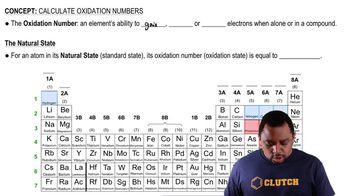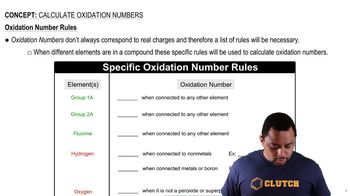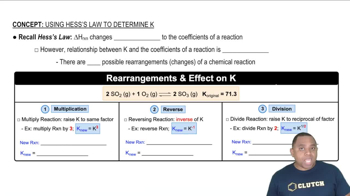Textbook Question
How many milliliters of 2.00 M HCl must be added to neutralize the following solutions? (b) A mixture of 0.120 M NaOH (350.0 mL) and 0.190 M HBr (150.0 mL)

 Verified step by step guidance
Verified step by step guidance



How many milliliters of 2.00 M HCl must be added to neutralize the following solutions? (b) A mixture of 0.120 M NaOH (350.0 mL) and 0.190 M HBr (150.0 mL)
Assign oxidation numbers to each element in the following compounds. (a) NO2
Assign oxidation numbers to each element in the following compounds. (c) COCl
Assign oxidation numbers to each element in the following compounds. (d) CH2Cl2
Assign oxidation numbers to each element in the following compounds. (e) KClO3